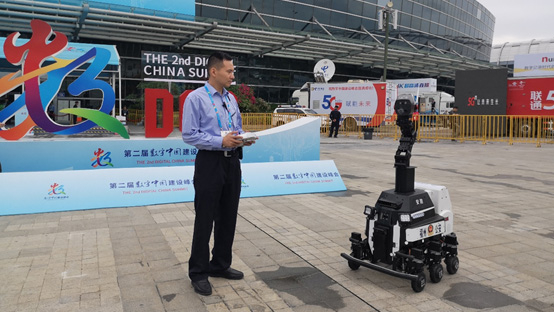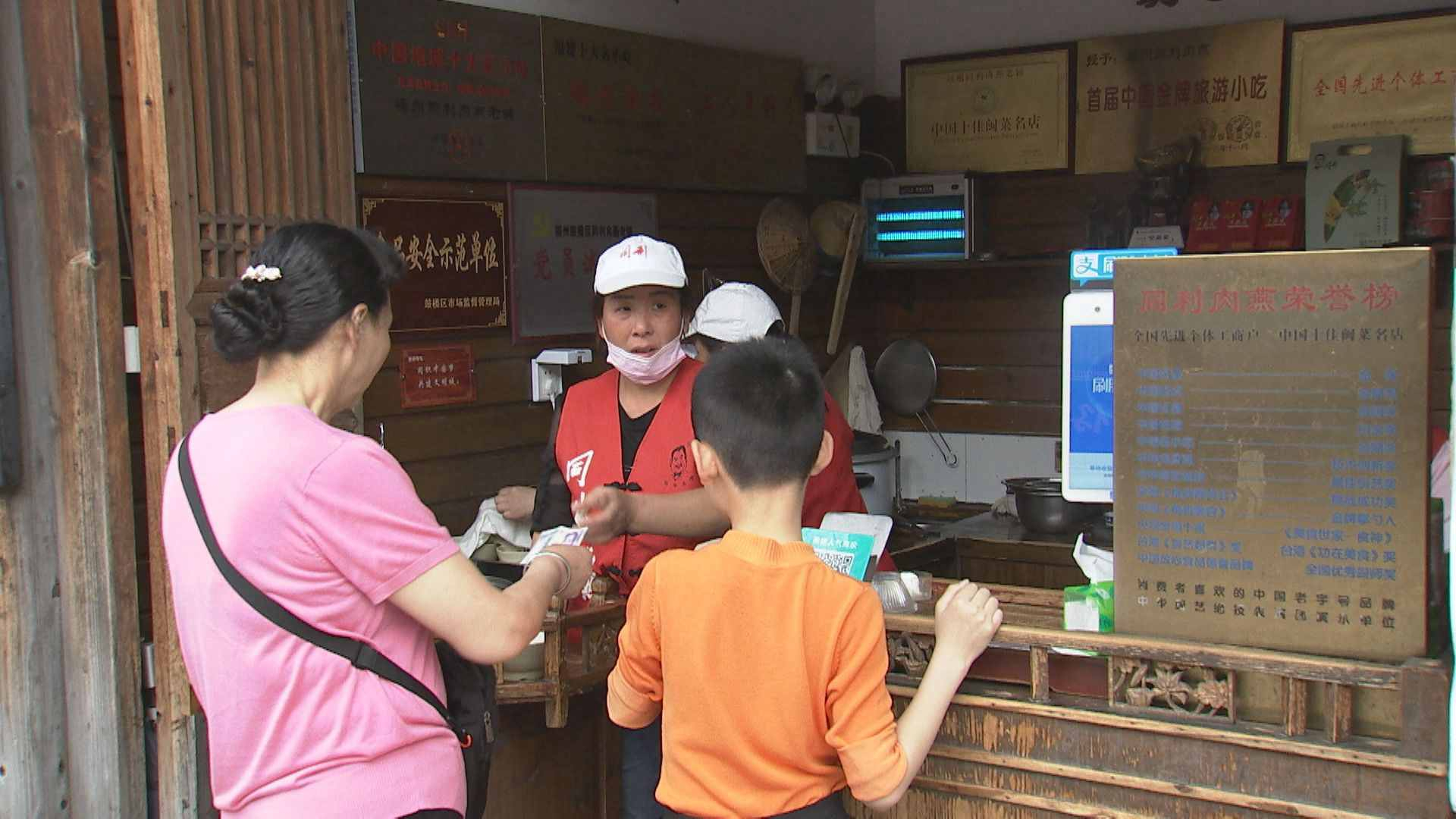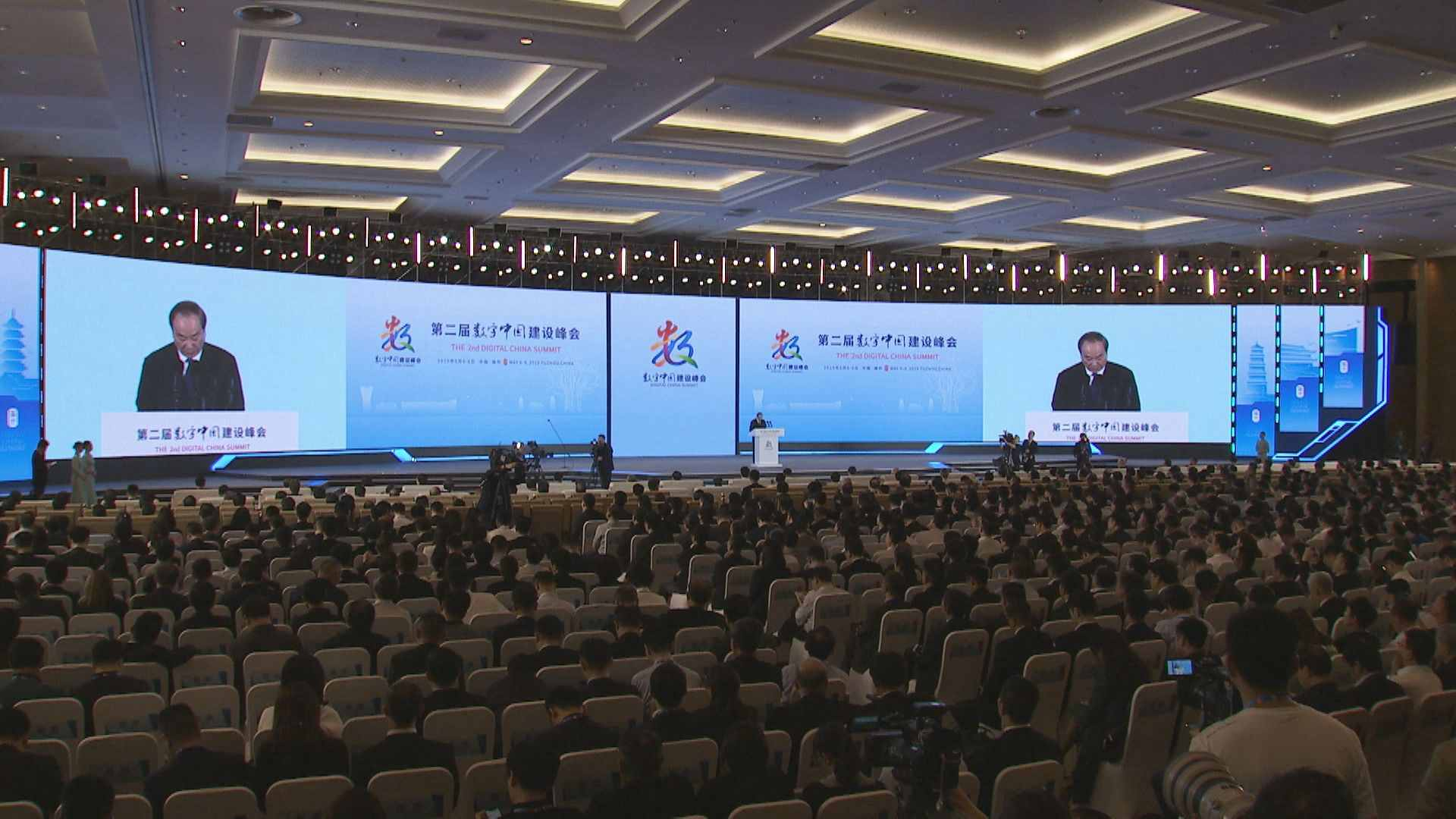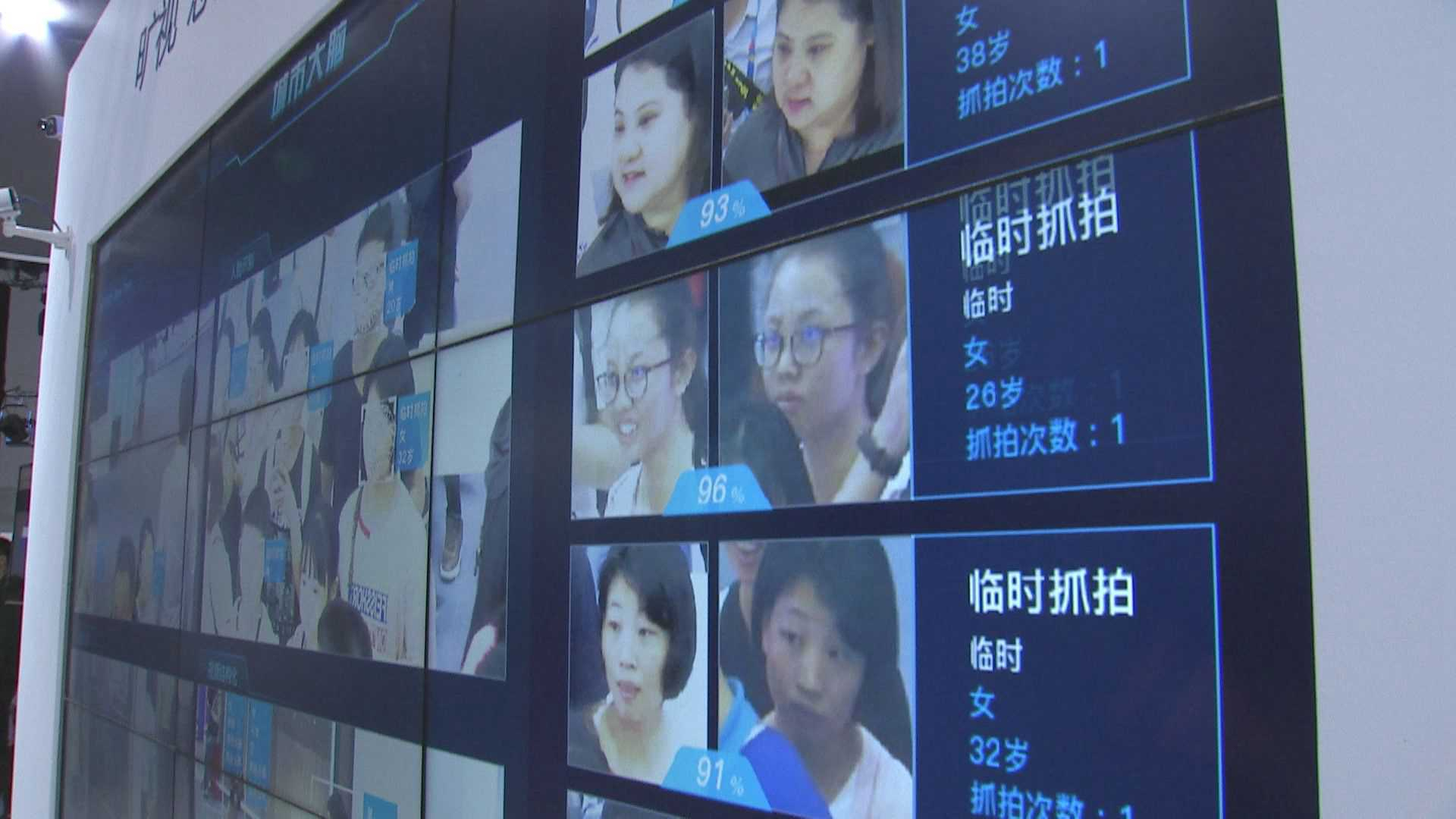
Technology
22:47, 06-May-2019
Digital China Summit: More technologies to upgrade traditional sectors
By Wu Lei, Liu Bo
02:27

Besides for seeing this cute little robotic police cruiser, I have seen many interesting digital things in Fuzhou City of southeast China's Fujian Province. One day ahead of the second Digital China Summit held here, I went downtown and experienced some of the coolest technologies
What does a smart city look like?

Most of the shops in Fuzhou's Sanfang Qixiang Street have been equipped with facial recognition machines from Ant Financial. /CGTN Photo
Most of the shops in Fuzhou's Sanfang Qixiang Street have been equipped with facial recognition machines from Ant Financial. /CGTN Photo
No cash, no credit card, even if your smartphone is powered off – you can just pay with your face. Smile and confirm your phone number, that's it, and the transaction is complete in less than 10 seconds. And this kind of facial recognition technology has made our shopping experience safer as well as faster.
With a digital trash recycling machine, people can sort and recycle waste with their phone. One of the rewards is a special bookmark which can be put into the soil and grow into a plant.
Above are some smart consumption scenarios. But in Fuzhou, people have a mobile app called "e-Fuzhou," which covers almost all aspects of government services and approvals in daily life, saving the citizens from dealing with the red tape.
It seems that every corner of China is embracing digital technology to build a smart society.
How can the latest technologies be used to upgrade traditional sectors?

More than 1,500 officials, company representatives and scholars are attending the second Digital China Summit in Fuzhou. /CGTN Photo
More than 1,500 officials, company representatives and scholars are attending the second Digital China Summit in Fuzhou. /CGTN Photo
According to a recent white paper, China's domestic digital economy reached 31.3 trillion yuan in 2018. That's about 4.6 trillion U.S. dollars, and roughly 34.8 percent of China's GDP.
Industry leader Digital China Group is one of them, and chairman and president Guo Wei said the key is properly applying 5G and AI where needed.
Guo told CGTN that one of the major challenges is how to use the latest technologies to upgrade the infrastructure of traditional sectors. Many digital companies don't understand the real needs of traditional industries.
Data sharing

Many companies expect more policy support to share and make the best use of the data value. /CGTN Photo
Many companies expect more policy support to share and make the best use of the data value. /CGTN Photo
From smart city to factories, from e-governance to smart agriculture, China's digital economy has produced a vast expanse of data.
Chen Tao, executive president of iFlytek, told CGTN that data among government departments is shared, but whether it is possible to open data sources to companies for public use, there is no clear policy.
Highly-anticipated summit on digital economy
With China's digital economy accounting for over one third of its GDP, many hope new policies can better protect data and properly regulate its usage. That's one reason why thousands have descended on the second Digital China Summit, which lasts to May 8.
Technologies from driverless vendor vehicles, facial recognition security checks to 5G networks are being used at the event in Fuzhou.
Through this summit, these companies hope that more collaboration will find new solutions for challenges ahead.

SITEMAP
Copyright © 2018 CGTN. Beijing ICP prepared NO.16065310-3
Copyright © 2018 CGTN. Beijing ICP prepared NO.16065310-3